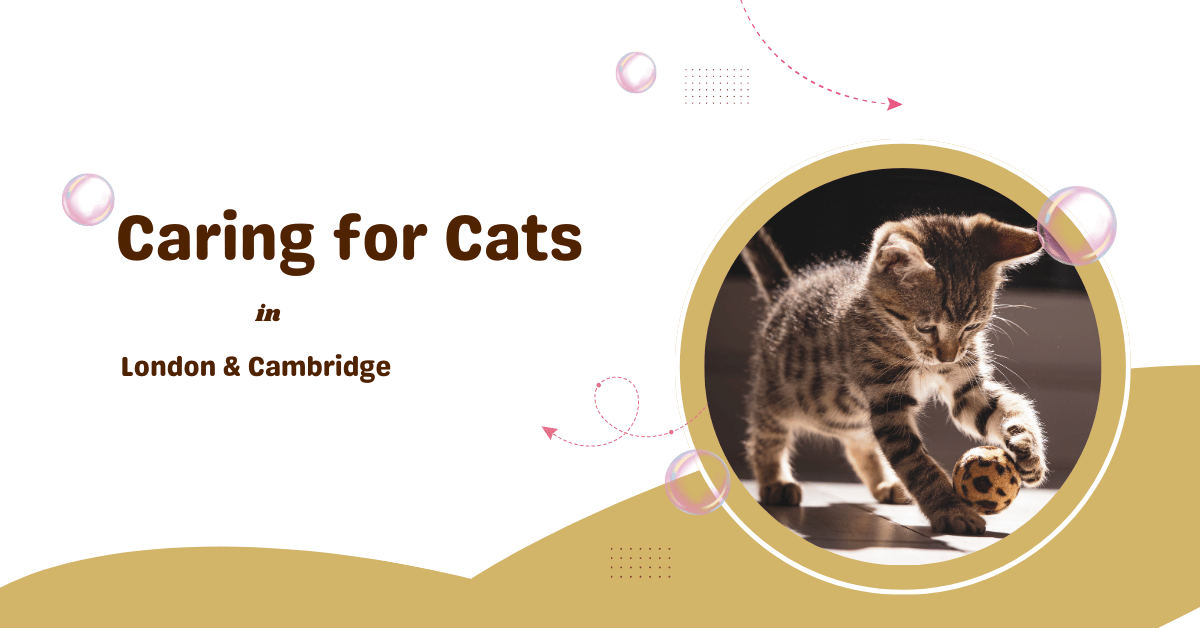London & Cambridge, UK, is a wonderful place for cat lovers who take pride in giving their pets the best care possible. Whether it’s the gentle and loving Ragdoll, the lively Bengal, or the regal British Blue, each breed has its own special needs that require care and attention.
Rescue cats also hold a special place in many homes, bringing both joy and a sense of responsibility to their owners.
In this blog, we’ll look at how to care for these popular breeds, discuss the importance of supporting rescue cats, and share tips to help your feline friend stay happy and healthy in Cambridge.
Understanding the Unique Needs of Popular Cat Breeds
At Chatty Cats Care we focus on meeting the needs of some of the most popular cat breeds in the UK. Each breed has its own personality and care requirements, and understanding these needs is key to keeping them happy and healthy.
1. Ragdoll Cats: The Gentle Giants
Ragdolls are known for their affectionate and laid-back personalities. These large, silky-coated cats thrive on companionship and love being around their humans. Regular grooming is essential to keep their long fur tangle-free, and their social nature means they benefit from interactive toys and plenty of quality time with their owners.
Ragdolls are also prone to certain health conditions, such as hypertrophic cardiomyopathy, so routine vet visits are vital. A balanced diet that supports their overall health and keeps their luxurious coat shiny is equally important.
To care for a Ragdoll:
- Grooming: Brush their semi-long coat regularly to prevent tangles.
- Diet: Feed them a high-protein, balanced diet to maintain their health and silky coat.
- Health: Regular vet check-ups are essential to monitor for any heart-related conditions.
2. Bengal Cats: The Energetic Explorers
Bengal cats are highly active and curious by nature. Their striking, leopard-like appearance is matched by their love for adventure. Providing them with plenty of mental and physical stimulation is essential to keep them happy and healthy.
Cat trees, climbing shelves, and puzzle feeders are great additions to a Bengal’s environment. Their dietary needs often include a high-protein diet to match their energy levels. Regular check-ups ensure their health is on track, especially as they age.
To care for a Bengal:
- Environment: Provide climbing posts, toys, and plenty of space for exercise.
- Diet: A protein-rich diet helps meet their energy demands.
- Interaction: Spend quality time playing with Bengals to keep them mentally and physically stimulated.
3. British Blue Cats: The Calm Companions
British Blue cats are known for their thick, plush coats and calm demeanour. These cats are relatively low-maintenance but still benefit from weekly brushing to keep their fur in top condition.
As a breed prone to obesity, British Blues require portion-controlled meals and a consistent feeding schedule. Playtime is essential to maintain a healthy weight, and their laid-back nature means they often enjoy quiet, bonding moments with their owners.
To care for a British Blue:
- Grooming: Weekly brushing keeps their thick coat in good condition.
- Diet: Manage portion sizes to avoid weight gain, as this breed is prone to obesity.
- Health: Regular vet visits are essential for monitoring their overall health.
Caring for Rescue Cats in Cambridge
Rescue cats often come with unique challenges and rewards. Many have faced hardship and need extra love and patience to feel secure in their new homes.
To care for a rescue cat:
- Patience: Allow them time to adjust to their new surroundings. Create a safe, quiet space where they can feel secure.
- Health: Schedule a vet visit to assess their health and vaccination status. Some rescues may have pre-existing medical needs.
- Socialisation: Slowly introduce them to other pets or family members. Gentle interaction helps build trust.
Special Care for Diabetic Cats
Cats diagnosed with diabetes require specific attention to their diet and routine. A diabetic cat diet includes low-carbohydrate, high-protein foods to maintain stable blood sugar levels. Regular feeding schedules and vet-prescribed insulin injections are often necessary.
At Chatty Cats Care, we have experience in managing diabetic cats, ensuring their medical and nutritional needs are met with precision and compassion.
Conclusion
Caring for cats involves understanding the unique needs of different breeds and providing rescue cats with the love and care they deserve. Whether you’re a proud parent to a Ragdoll, Bengal, or British Blue, or you’re offering a second chance to a rescue cat, your efforts ensure they lead happy, healthy lives.
We’re passionate about helping cat owners in Cambridge provide exceptional care for their feline companions. From specialised diets to expert grooming advice, we’re here to support you every step of the way.

